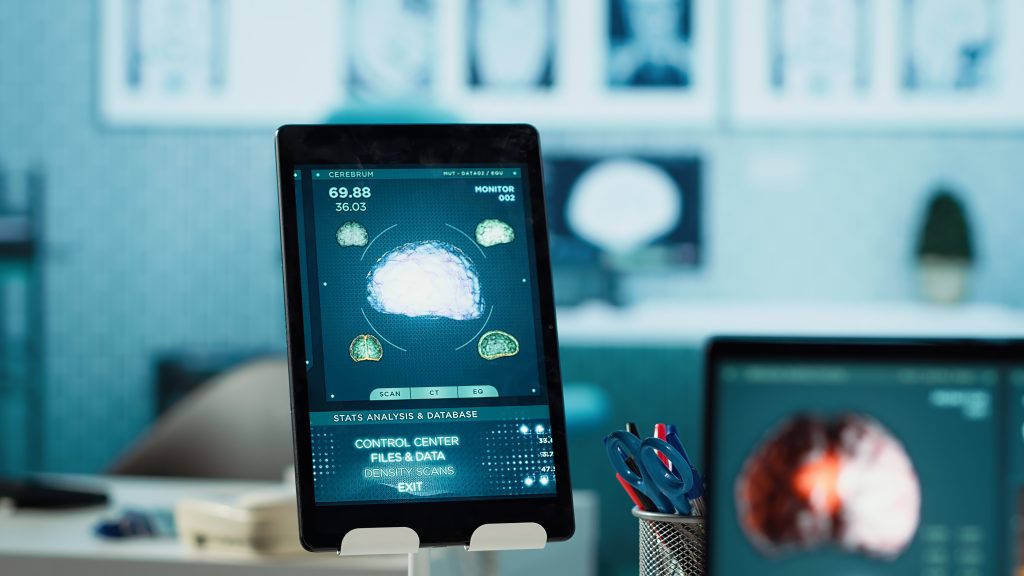
Controlling The Power of AI in Healthcare Operations
As healthcare systems worldwide become increasingly complex, the demand for intelligent, scalable, and efficient solutions has never been greater. Artificial Intelligence (AI) is increasingly emerging as a foundational technology that can enhance clinical workflows, reduce administrative load, and improve patient outcomes when implemented strategically.
This post examines how AI is transforming healthcare operations across four key domains: smart scheduling, diagnostic support, claims automation and fraud detection, and natural language processing (NLP) for medical records and chatbots.
1. Smart Scheduling and Operational Optimisation
AI-powered scheduling systems utilise machine learning to dynamically manage appointments, resource allocation, and staff shifts, particularly in high-volume environments such as hospitals.
How it works:
- Predictive modelling: predicts patients who are not likely to arrive or experience delays based on historical behaviour.
- Constraint optimisation algorithms: match staff availability, patient needs, and equipment in real time.
- Reinforcement learning models: adjust schedules on the fly based on actual outcomes and disruptions.
Benefits:
- Increased productivity without overloading staff
- Reduced wait times and cancellations
- Better utilisation of physical and human resources
2. Diagnostic Decision Support
AI is being used to augment, not replace, clinical decision-making. Diagnostic support tools use machine learning to analyse structured and unstructured data — including imaging, lab results, and patient history — to assist clinicians in identifying risks or narrowing differential diagnoses.
Common use cases:
- Rule-based expert systems for triage and symptom checking
- Deep learning for image classification (e.g., chest X-rays, retinal scans)
- Predictive models for early warning systems (e.g., sepsis detection, cardiac events)
Considerations:
- Integration with electronic health records is critical for context-aware insights
- Human-in-the-loop validation remains essential for clinical safety
3. Claims Automation and Fraud Detection
Healthcare billing is one of the most complex administrative tasks, and also one of the most prone to inefficiencies and fraud. AI solutions are being developed to improve claims processing and detect anomalies in billing patterns.
Key technologies:
- Natural Language Processing (NLP) to extract structured data from claims documents and unstructured notes
- Anomaly detection algorithms to flag outliers in procedure codes, billing frequency, or reimbursement amounts
- Supervised machine learning trained on known fraud cases to identify similar patterns
Outcomes:
- Faster claims approvals
- Reduced administrative costs
- Proactive fraud monitoring without constant manual review
4. NLP in Medical Records and Patient Communication
The volume of unstructured text in healthcare — from doctor notes to discharge summaries — makes natural language processing (NLP) an essential AI domain.
Core applications:
- Clinical documentation analysis: for extracting key data points (e.g., diagnosis, medication, allergies)
- Entity recognition and coding: (e.g., mapping terms to ICD-10 or SNOMED)
- Conversational AI / Chatbots: for patient engagement, pre-screening, or post-discharge follow-ups
Tools and models:
- Transformer-based architectures (e.g., BERT, BioBERT, GPT)
- Rule-based engines for structured environments
- Integration with EHRs or custom APIs for real-time processing
Integration Challenges and Considerations
While the promise of AI is huge, integration into existing healthcare environments requires careful planning.
Key factors to consider:
- Data interoperability: Ensure compatibility with existing electronic health records, billing systems, and hospital IT infrastructure.
- Regulatory compliance: Protect patient privacy and follow data protection laws.
- Change management: Train staff to interact with AI tools effectively and build trust in AI-assisted decision-making.
Final Thought
AI is not a one-size-fits-all solution, but when thoughtfully implemented, it has the potential to dramatically improve both operational efficiency and clinical quality. As the healthcare sector continues to digitise and scale, AI will become an increasingly essential component in delivering timely, accurate, and efficient care.
